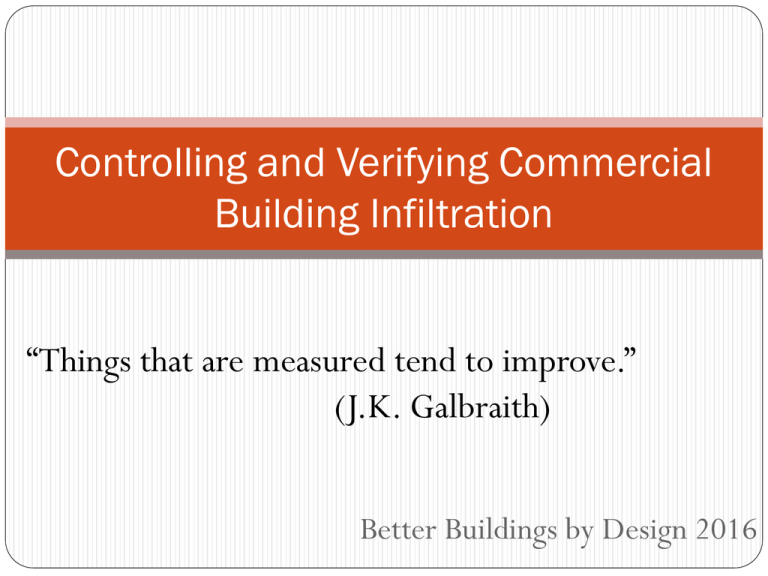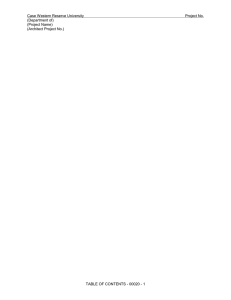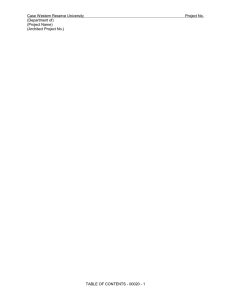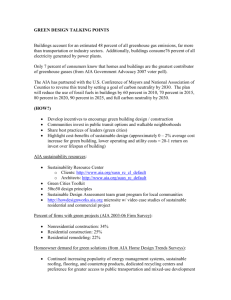
Controlling and Verifying Commercial
Building Infiltration
“Things that are measured tend to improve.”
(J.K. Galbraith)
Better Buildings by Design 2016
Credit(s) earned on
completion of this course
will be reported to AIA
CES for AIA members.
Certificates of Completion
for both AIA members and
non-AIA members are
available upon request.
___________________
Questions related to
specific materials, methods,
and services will be
addressed at the conclusion
of this presentation.
This course is registered
with AIA CES for
continuing professional
education. As such, it does
not include content that
may be deemed or
construed to be an approval
or endorsement by the AIA
of any material of
construction or any
method or manner of
handling, using,
distributing, or dealing in
any material or product.
Learning Objectives
1. Benchmarks
2. Testing protocols
3. Value of testing
4. Limitations of testing
3
© 2015 CLEAResult. All rights reserved. 9
Control Air Flow For:
Moisture
Health
Comfort
Energy Savings
Organization
Air Tightness
Year
Metric
[cfm75/ft2]
US Army Corps of Engineers
2009
0.25
ASHRAE 189.1 (optional)
Washington State
US General Services Admin.
2009
2012
2010
0.25
0.40
0.40
Naval Facilities Eng. Command
2011
0.25
US Air Force
2011
0.40
IECC Commercial (optional)
2012
0.40
IgCC
IECC Residential (required)
2012
2012
0.25
3.0 ACH50
ASHRAE 1478 RP
Slide Courtesy of Wiss Janney Elstner Associates
Project Timeline
Start Construction
Start Design
Occupancy
Test
Air Barrier Installation
Good Testing ≠ Tight Building
Design Phase
Continuity
Owner’s Project Requirements
Simplicity
Construction Phase
Coordination
Quality control
Continuity in Drawings
Transitions
Roof to Wall
Wall to Foundation
Windows
Curtain wall
Expansion joints
Penthouses
Details
Specifications
ASTM E779 – 10
ASTM E1827 – 11
Maximum allowable airflow rate
Specified reference pressure
Good Testing ≠ Tight Building
Design Phase
Owner’s Project Requirements
Continuity
Simplicity
Construction Phase
Coordination
Quality control
© 2015 CLEAResult. All rights reserved. 21
Why is a Test Valuable
Verifiable
Down size mechanical system
Code compliance – Performance metrics
Accuracy energy model
Two Types of Tests
Air Barrier Systems Enclosure Test
Operational Enclosure Test
Test Preparation
Identify test boundary
Calculate metric
Determine fan locations
Assess equipment needs
Assign responsibilities
Planning meeting
Subcontractor support
Site Preparation
Turn off HVAC systems
Seal intentional holes
Close exterior doors/windows
Create a single zone
Fill plumbing traps
Check atmospheric combustion appliances
Mechanical System Leakage
Slide Courtesy of Wiss Janney Elstner Associates
Exterior Pressure Taps
ʘ
ʘ
ʘ
ʘ
AVE
.
100
Multipoint Regression Test
Repeat Single Point Test
Data Analysis and Calculations
Testing Conditions
Evolution of Limiting Weather
E779 – abs(Tin/Tout)*Height < 1180 ft F
USACE – Baseline pressure = 30% lowest PD
25 Pa delta
85 Pa max
ABAA – Max
1. absolute value + 10 * standard deviation of the
baseline – or between
2. Stack pressure / 2
3. 10 Pa
Multifamily - Compartmentalization
48
Air Sealing
Around Unit
© 2015 CLEAResult. All rights reserved. 49
Organization
Compartment.
Metric [cfm50/ft2]
EPA High-rise
0.23
0.30
LEED Homes Multifamily EQ12.1
0.30
LEED Homes Multifamily EQ12.2
0.225
0.30
0.225
0.135
0.30
LEED V. 4
MA Utility Incentive Tier 1
MA Utility Incentive Tier 2
MA Utility Incentive Tier 3
RESNET MF duct exemption
INTERMEDIATE
TESTING
Buffering Adjacent Spaces
Preparation, Preparation, Preparation
Roles and responsibilities
Systems to seal
Testing equipment setup
WIFI can be tough
Mechanical system controls
Cleaning materials
Pressurize first
Costs
New construction
40,000 sq. ft.
Simple geometry
0.25 cfm75/sq. ft.
Task
Time (hr)
12
Preparation
5
Setup/breakdown
1
Measure Results
2
Find the leaks
8
Data analysis/report
Total
Staff
Total Time
1
2
2
2
1
12
10
2
4
8
36
Resources
Air Barrier Association of America
Standard Method for Building Enclosure
Airtightness Compliance Testing
The Energy Conservatory
BD Applications Guide: Beyond Single Family
U.S. Army Corps of Engineers Air Leakage
Test Protocol for Building Envelopes – V.3
Thank you
for your time
This concludes The American Institute of
Architects Continuing Education Systems program
Matt Root
Matt.Root@clearesult.com
508-365-3494




